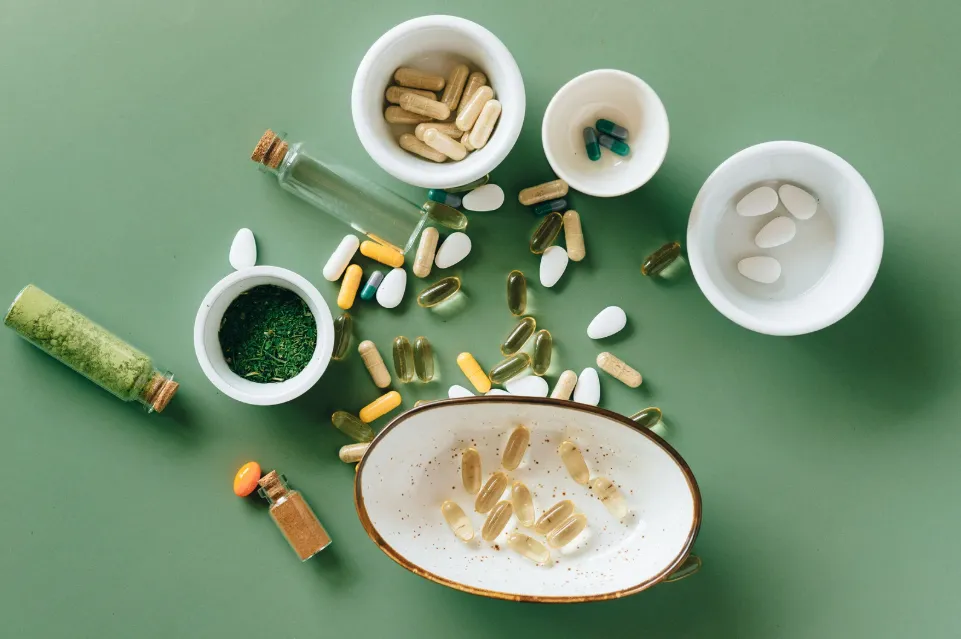
Are Supplements Cheating Your Health?
Are Supplements Cheating Your Health?
It’s tempting to believe that taking a few capsules can replace the need for a healthy diet. After all, supplements promise to deliver all the nutrients you need in one convenient package. But here’s the truth: no pill can replicate the complexity and benefits of whole foods. Today, we’re unpacking why supplements aren’t enough and why whole foods remain the cornerstone of true health.
Why Supplements Alone Aren’t Enough
Supplements can play a valuable role in filling specific nutritional gaps, but they’re not a magic bullet. They provide isolated nutrients, often missing the synergy and additional compounds found in whole foods. Whole foods offer a complex array of vitamins, minerals, antioxidants, fiber, and other bioactive compounds that work together to promote health in ways supplements simply can’t match.
For example, an orange isn’t just a source of vitamin C. It also contains fiber, flavonoids, and other antioxidants that interact with vitamin C to enhance its absorption and effectiveness. When you rely solely on supplements, you miss out on this natural synergy.
The Unique Benefits of Whole Foods
Whole foods provide far more than just isolated nutrients—they’re packed with compounds that promote health in ways we’re still discovering.
1. Synergy of Nutrients
The nutrients in whole foods don’t act alone—they work together to enhance absorption and effectiveness. For example, calcium in leafy greens is better absorbed thanks to the presence of magnesium and vitamin K, which are often found alongside it in nature. Supplements rarely replicate this natural teamwork.
2. Fiber for Gut Health
Whole foods like fruits, vegetables, and whole grains are rich in fiber, which is essential for healthy digestion and gut health. Fiber feeds beneficial gut bacteria, supports regular digestion, and helps control blood sugar levels. Most supplements lack this crucial component, leaving a critical gap in your diet.
3. Phytochemicals and Antioxidants
Whole foods are rich in phytochemicals—natural compounds like flavonoids, carotenoids, and polyphenols—that provide additional health benefits. These compounds help reduce inflammation, protect against chronic diseases, and support overall cellular health. Supplements might isolate one or two, but they can’t replicate the broad spectrum found in whole foods.
The Risks of Relying on Supplements
While supplements can be helpful, relying on them exclusively can lead to unintended consequences.
Overdosing on Nutrients
It’s easy to overdo it with supplements, especially fat-soluble vitamins like A, D, E, and K, which can build up in your body and cause toxicity. With whole foods, it’s much harder to consume excessive amounts because they come in balanced proportions.
Missing Nutrient Diversity
Supplements often focus on popular nutrients like vitamin D or calcium, leaving out lesser-known but equally important nutrients like selenium, boron, or choline, which are abundant in whole foods.
Overconfidence in Health
Taking supplements can create a false sense of security, leading people to neglect other important aspects of their diet. No supplement can make up for a diet lacking in variety, color, and natural nutrients.
How to Use Supplements Wisely
Supplements aren’t inherently bad—they’re just not a replacement for real food. When used correctly, they can help address specific deficiencies or provide extra support during certain life stages.
1. Fill Specific Gaps
Use supplements to address deficiencies that are hard to correct through diet alone, such as vitamin D in winter or iron for those with anemia.
2. Support Special Needs
Pregnant women, athletes, or individuals with certain medical conditions may benefit from targeted supplementation, but these should complement—not replace—a healthy diet.
3. Choose Quality Over Quantity
Not all supplements are created equal. Look for high-quality options with minimal fillers and synthetic additives, and avoid mega-doses unless recommended by a healthcare provider.
Final Thoughts
Supplements can be a helpful addition to your health routine, but they’ll never match the complexity, balance, and benefits of whole foods. Your body thrives on the natural synergy of nutrients, fiber, and phytochemicals that only real food provides. So, think of supplements as just that—supplementary. Start with a plate full of colorful, whole foods, and let supplements fill in the gaps when needed. True health begins with what’s on your fork, not in your pill bottle.
Healing starts at the cell - Download my free Cell Health Checklist
Healing starts at the cell. If you are curious about the health status of your cell and whether or not you may be experiencing inflammation, click here for my free Cell Health Checklist.
